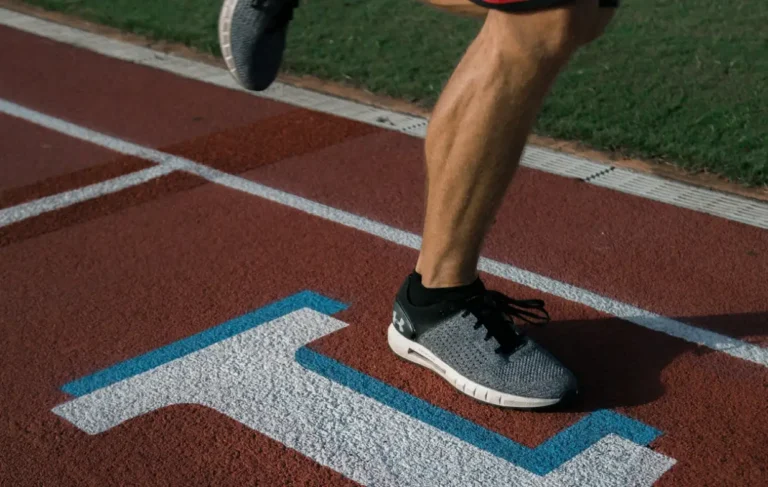Is Keto the right diet for a runner
Many runners are curious about the keto diet and if it can help their performance. This diet is known for its low-carb, high-fat approach, which promises to turn your body into a fat-burning machine. But is it really the best choice for runners? Let’s dive into how keto works for different types of runners and what experts have to say.
Key Takeaways
- The keto diet is a low-carb, high-fat diet that aims to make your body burn fat for energy.
- Ultramarathon runners might benefit the most from the keto diet due to their long, steady runs.
- Short-distance runners may struggle with the keto diet because they need quick energy from carbs.
- Transitioning to a keto diet can take time and may affect your training initially.
- A balanced diet with carbs might be better for most runners to boost recovery and performance.
Understanding the Keto Diet and Its Appeal to Runners
What is the Keto Diet?
The keto diet is a low-carb, high-fat eating plan. It aims to put your body into a state called ketosis, where it burns fat for fuel instead of carbs. This diet has gained popularity for its potential to help with weight loss and improve certain health conditions.
Why Runners Are Interested in Keto
Many runners are curious about the keto diet because of its promise to enhance endurance by teaching the body to burn fat more efficiently. This can be especially appealing for long-distance runners who need sustained energy over extended periods.
Common Misconceptions About Keto and Running
There are several myths about combining keto and running. One common misconception is that you can’t perform well without carbs. While it’s true that the transition period can be tough, many runners find that they can adapt and even thrive on a keto diet.
Before jumping on the keto bandwagon, runners should consider if this diet aligns with their personal goals and needs. It’s not a one-size-fits-all solution.
How Keto Affects Running Performance
Short-Term Effects on Endurance
When you first start a keto diet, your running performance might drop. Don’t expect to set new personal records or run your longest distance right away. Carbs are still the best fuel for high-intensity running. Without them, you won’t be as fast. But, ketosis can help you run at a steady pace for hours without getting tired.
Long-Term Adaptation and Fat Burning
Over time, your body can adapt to burning fat for fuel. This is called fat adaptation. Even the leanest athlete has about 40,000 calories of fat stored. That’s 20 times more energy than carbs can provide. This makes keto great for marathon runners who need to use stored fat as fuel.
Potential Drawbacks for Runners
There are some downsides to running on keto. High-intensity runners might struggle without carbs. Some athletes eat carbs before a big race to get the fuel they need. They just have to burn off the carbs to stay in ketosis. This can be tricky to manage.
Is Keto Suitable for All Types of Runners?
Keto for Ultramarathon Runners
For ultramarathon runners, the keto diet can be a game-changer. These athletes run great distances, often over 30 miles in a single race. Since their runs are usually lower in intensity but longer in duration, they naturally enter ketosis. This makes the keto diet a natural fit for them, as it helps in maintaining energy levels over extended periods.
Challenges for Sprinters and Middle-Distance Runners
Sprinters and middle-distance runners face a different set of challenges. Their races are shorter but require high bursts of energy. Carbohydrates are essential for these high-intensity efforts. Adapting to keto can be tough for them, as the body needs time to switch from burning carbs to burning fats. This adaptation period can hamper their training and performance.
Adjusting Keto for Different Training Phases
If a higher-intensity runner is interested in the health benefits of keto, they might consider a variation. Some athletes consume carbs before a big race without leaving ketosis. They just need to burn off the carbs consumed. This way, they get the fuel needed for their intensity level without affecting their diet.
Ultimately, only highly dedicated runners training for ultramarathons ought to be thinking about the Keto Diet. Other runners will have trouble sticking with the diet, the adaptation timeframe will hamper weeks of training, and the intensity of shorter races means that carbs are necessary to reach your potential.
In summary, while keto can be beneficial for ultramarathon runners, it may not be the best choice for sprinters and middle-distance runners. Adjusting the diet to fit different training phases can help, but it’s not a one-size-fits-all solution.
Practical Tips for Runners Considering Keto

Transitioning to a Keto Diet
Switching to a keto diet can be a big change, especially for runners. Gradually work your way into ketosis to avoid sudden drops in energy. Start by reducing carbs slowly and increasing fats in your meals. This helps your body adjust without shocking your system.
Balancing Carbs and Fats
Finding the right balance between carbs and fats is key. Some runners find it helpful to schedule the carbs they are eating around their resistance training and higher-intensity workouts. This way, you get the energy you need without leaving ketosis. Cycling through low- and high-carb weeks can also be a good strategy.
Monitoring Performance and Health
Keep an eye on how your body responds to the keto diet. Track your running performance and overall health. If you notice any negative changes, it might be time to tweak your diet. Supplementing with exogenous ketones can be a good option to maintain energy levels.
Remember, every runner is different. What works for one person might not work for another. Listen to your body and adjust as needed.
Expert Opinions on Keto and Running

Insights from Sports Dietitians
Sports dietitians have mixed feelings about the keto diet for runners. Some believe it can help with fat loss and improving chronic health issues. However, others worry about the lack of carbs, which are essential for high-intensity workouts. It’s crucial to consult a dietitian before making any drastic changes to your diet.
Studies and Research Findings
Research on keto and running is still evolving. Some studies suggest that keto can enhance endurance by teaching the body to burn fat more efficiently. However, other research points out potential drawbacks, like reduced performance in high-intensity activities. The science is still out, so it’s best to stay updated with the latest findings.
Real-World Experiences from Runners
Many runners have shared their experiences with the keto diet. Some ultra-runners, who run long distances, find keto beneficial for their lower-intensity but longer runs. On the other hand, sprinters and middle-distance runners often struggle with the lack of quick energy from carbs. It’s a mixed bag, and personal experiences can vary widely.
Before anybody decides to jump on the keto bandwagon and abandon carbohydrates, they should seriously consider whether this diet is right for them.
Alternative Diets for Optimal Running Performance
Balanced Diets for Runners
A balanced diet is key for runners. It includes a mix of carbs, proteins, and fats. Experts recommend not ignoring any major nutrient. This helps with endurance and overall health. Instead of focusing on one type of food, aim for variety. This way, you get all the nutrients you need.
Carb Cycling and Its Benefits
Carb cycling means eating more carbs on some days and fewer on others. This can help with training and recovery. For example, eat more carbs on hard training days. On rest days, eat fewer carbs. This method can boost your energy and help you recover faster.
Nutrient Timing and Recovery
When you eat is just as important as what you eat. Eating carbs and proteins right after a run can help your muscles recover. Try to eat a snack or meal within 30 minutes of finishing your run. This can make a big difference in how you feel the next day.
A well-rounded diet works best for endurance runners. It helps you recover and perform better.
Here are some tips to optimize your diet for running:
- Include a variety of foods in your diet.
- Don’t skip any major nutrients.
- Adjust your carb intake based on your training schedule.
- Eat a snack or meal soon after your run.
By following these tips, you can boost your performance and enjoy your runs more.
Conclusion
In the end, the keto diet might not be the best fit for most runners. While it can be beneficial for ultra-runners who need to burn fat over long distances, it can be tough for others to stick with. The time it takes to adapt can mess up weeks of training, and for shorter, more intense runs, carbs are key to hitting your best times. Instead, focusing on a balanced diet that supports your running can help you recover faster and perform better. So, before you ditch the carbs, think about what your running goals are and choose the diet that helps you reach them.
Frequently Asked Questions
What is the Keto Diet?
The Keto Diet is a low-carb, high-fat diet where you eat very few carbs and lots of fats. This forces your body to burn fat for energy instead of carbs.
Why are runners interested in the Keto Diet?
Runners are curious about the Keto Diet because it promises to help with fat burning and endurance. Some believe it can improve long-distance running performance.
Are there any drawbacks for runners on the Keto Diet?
Yes, there can be drawbacks. The adaptation period can be tough, and runners might feel low on energy. Shorter distance runners might struggle because they need more carbs for quick energy.
Is the Keto Diet good for all types of runners?
No, it’s not suitable for everyone. Ultra-marathon runners might benefit, but sprinters and middle-distance runners usually need more carbs for their intense workouts.
How can runners transition to a Keto Diet?
Runners can start by gradually reducing their carb intake and increasing fats. It’s important to monitor how they feel and adjust as needed. Consulting a dietitian can also help.
Are there alternative diets for runners?
Yes, there are other diets like balanced diets, carb cycling, and focusing on nutrient timing and recovery. These can also help improve running performance without cutting out carbs completely.






